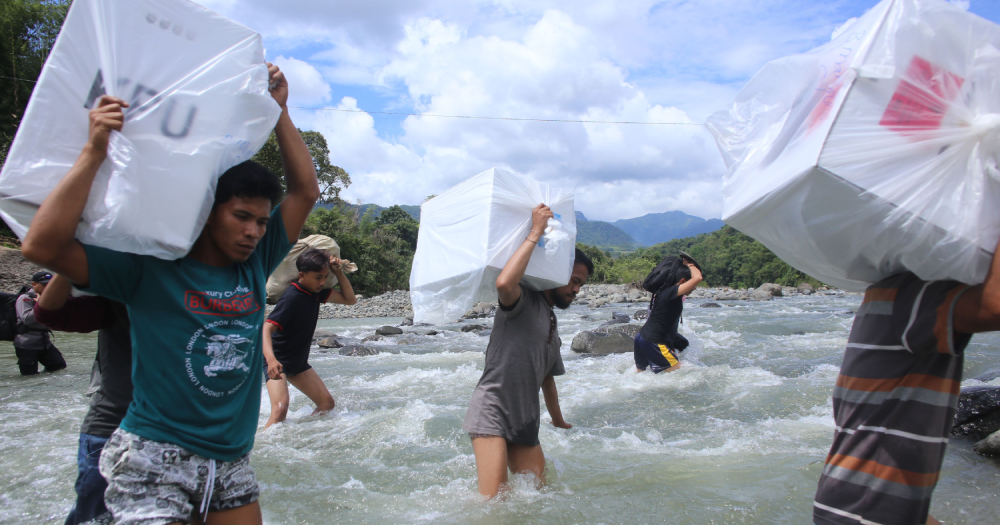Indonesia kicked off one of the world's largest elections on Wednesday, April 17.
The elections pitted the incumbent President Joko Widodo, popularly known as Jokowi, against former army general Prabowo Subianto in a race to lead the world's third largest democracy.
Polls opened at 7am Jakarta time (8am Singapore time), and closed at 1pm Jakarta time (2pm Singapore time).
The entire process for each voter casting his or her ballot for candidates at five different levels of government -- from the president to the local district -- is over within mere minutes.
But the work that goes on behind the elections takes way longer than that.
No easy feat
Some 192 million registered voters voted at 800,000 polling stations spread out across 17,000 islands in the archipelago.
The scale of the elections was mammoth, made possible only by the election workers, who carried the ballot boxes to the most remote parts of Indonesia.
Here's the work that culminated into a six-hour election process that will set the course of Indonesia's politics for the next five years.
Across all sorts of terrain
Indonesian election workers carried ballot boxes across a river to deliver them to Bonto Matinggi village, a remote village in Maros, South Sulawesi.
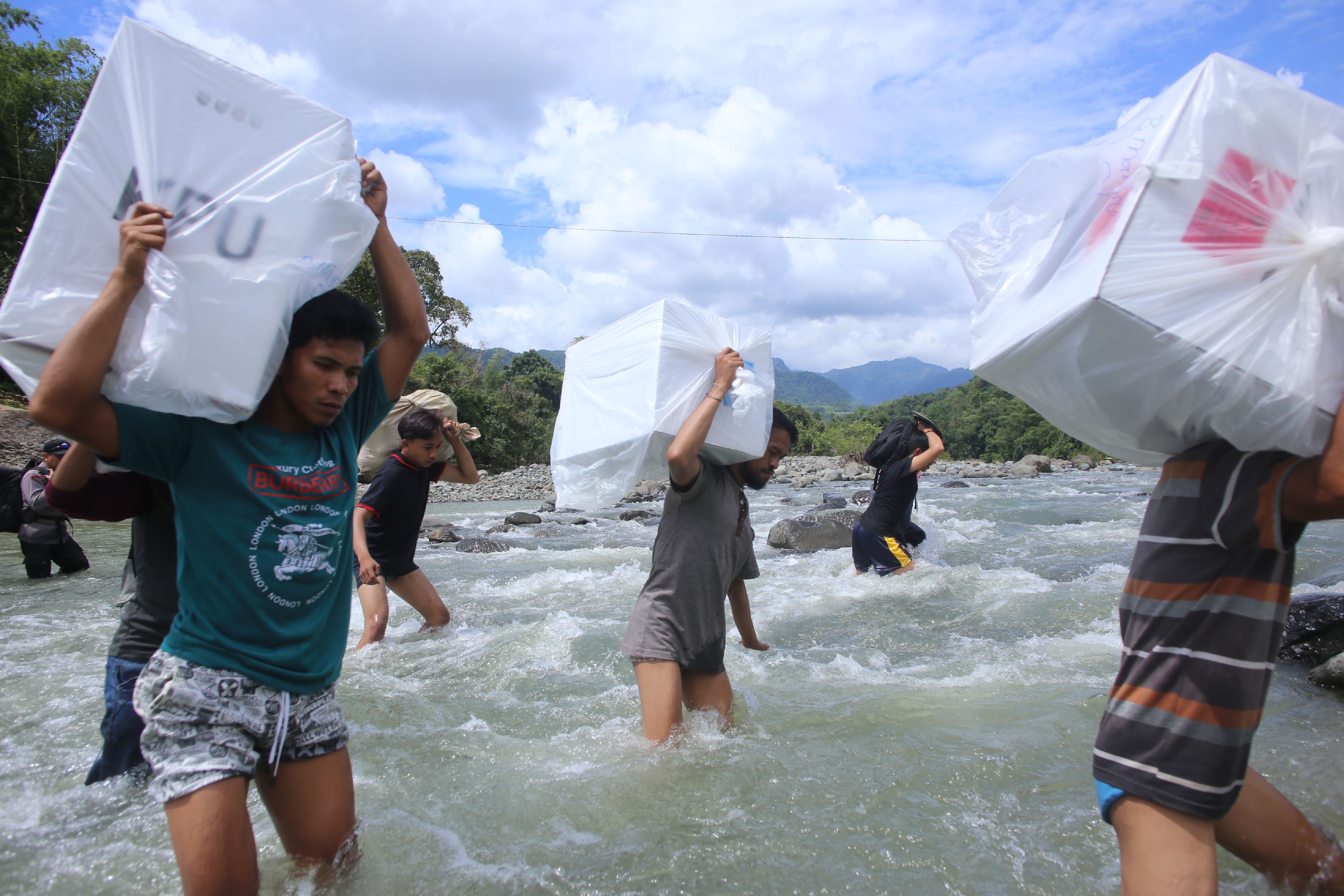 Photo by DAENG MANSUR/AFP/Getty Images
Photo by DAENG MANSUR/AFP/Getty Images
Ballots boxes and materials were also transported to remote villages in Palembang a day before the elections.
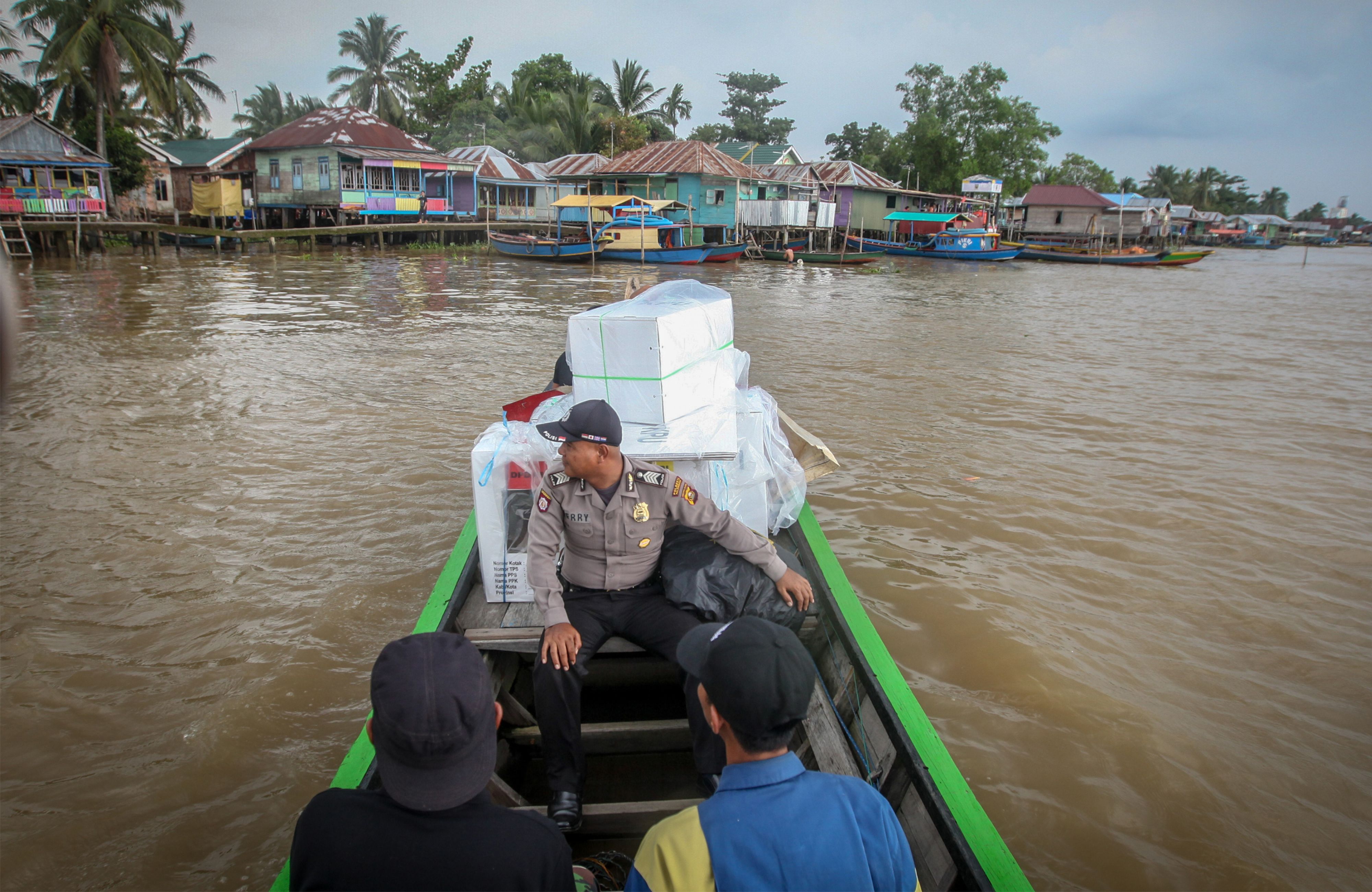 Photo by ABDUL QODIR/AFP/Getty Images
Photo by ABDUL QODIR/AFP/Getty Images
Ballot materials were brought to a remote village by boat along a river in Manggamat, Southern Aceh province too.
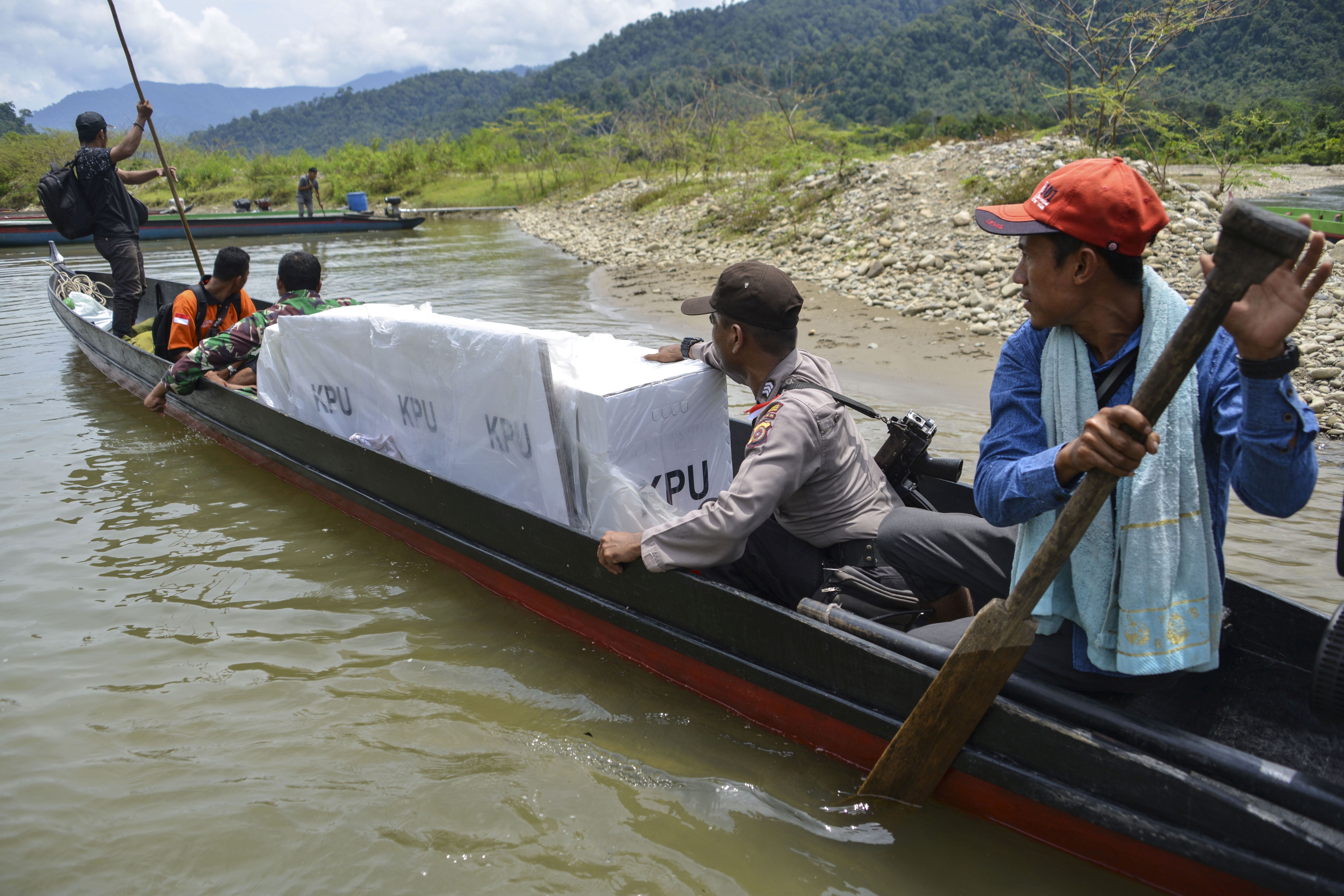 Photo by CHAIDEER MAHYUDDIN/AFP/Getty Images
Photo by CHAIDEER MAHYUDDIN/AFP/Getty Images
The same was done for remote villages in Gili, Lombok.
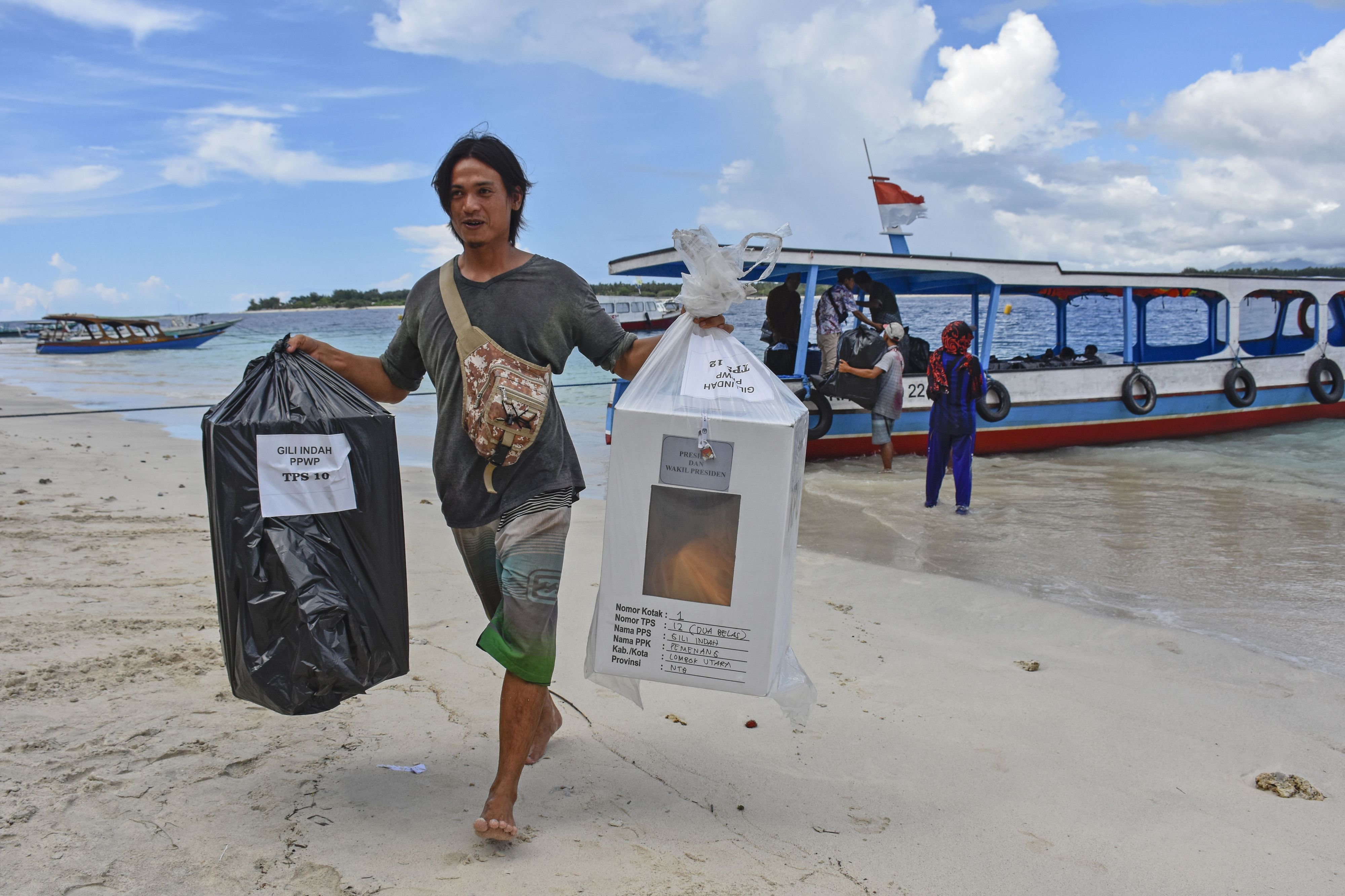 Photo by JAYADI/AFP/Getty Images
Photo by JAYADI/AFP/Getty Images
Even floods did not deter election workers.
In Bandung, makeshift rafts were put together to make sure the ballot boxes reach their destination.
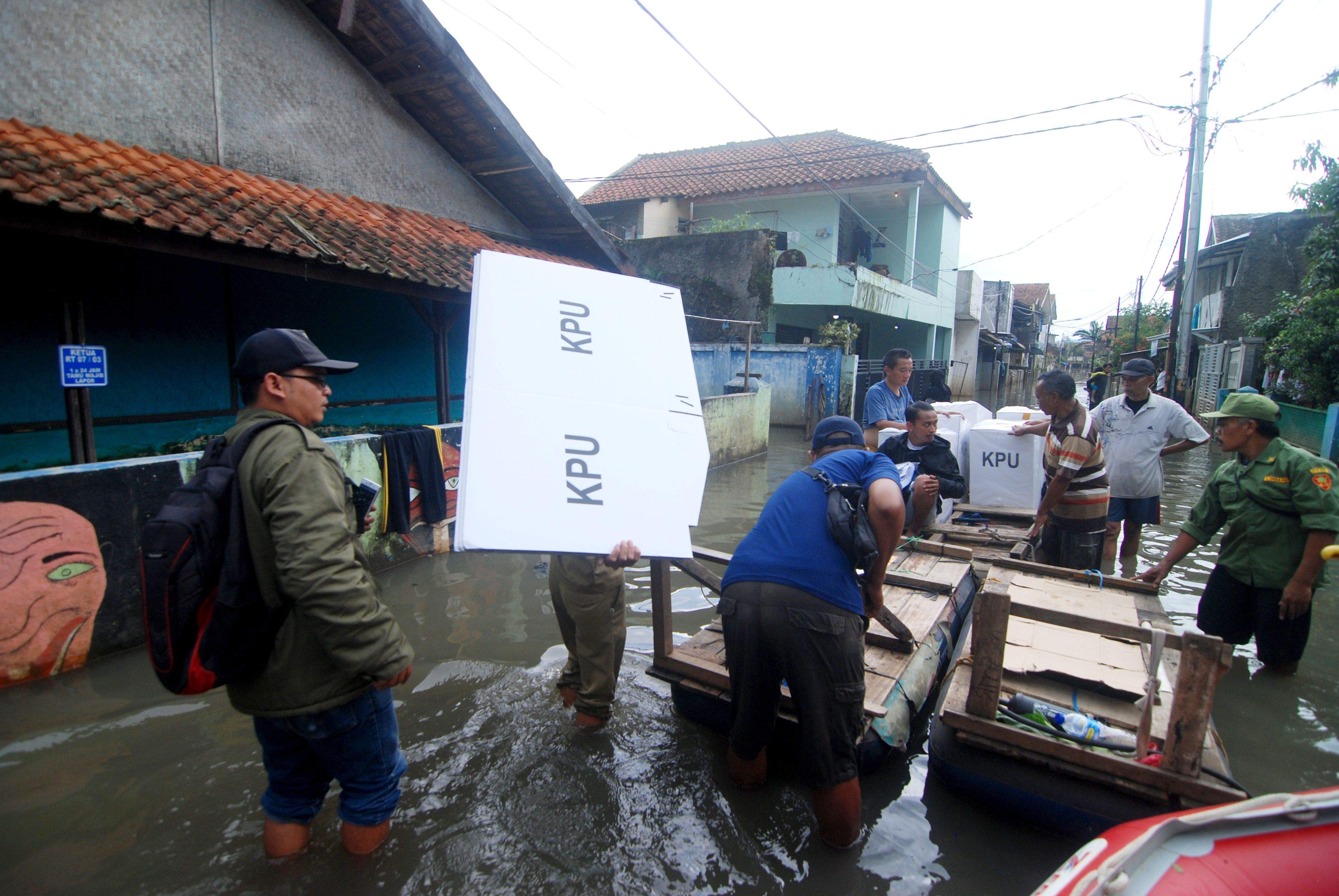 Photo by TIMUR MATAHARI/AFP/Getty Images
Photo by TIMUR MATAHARI/AFP/Getty Images
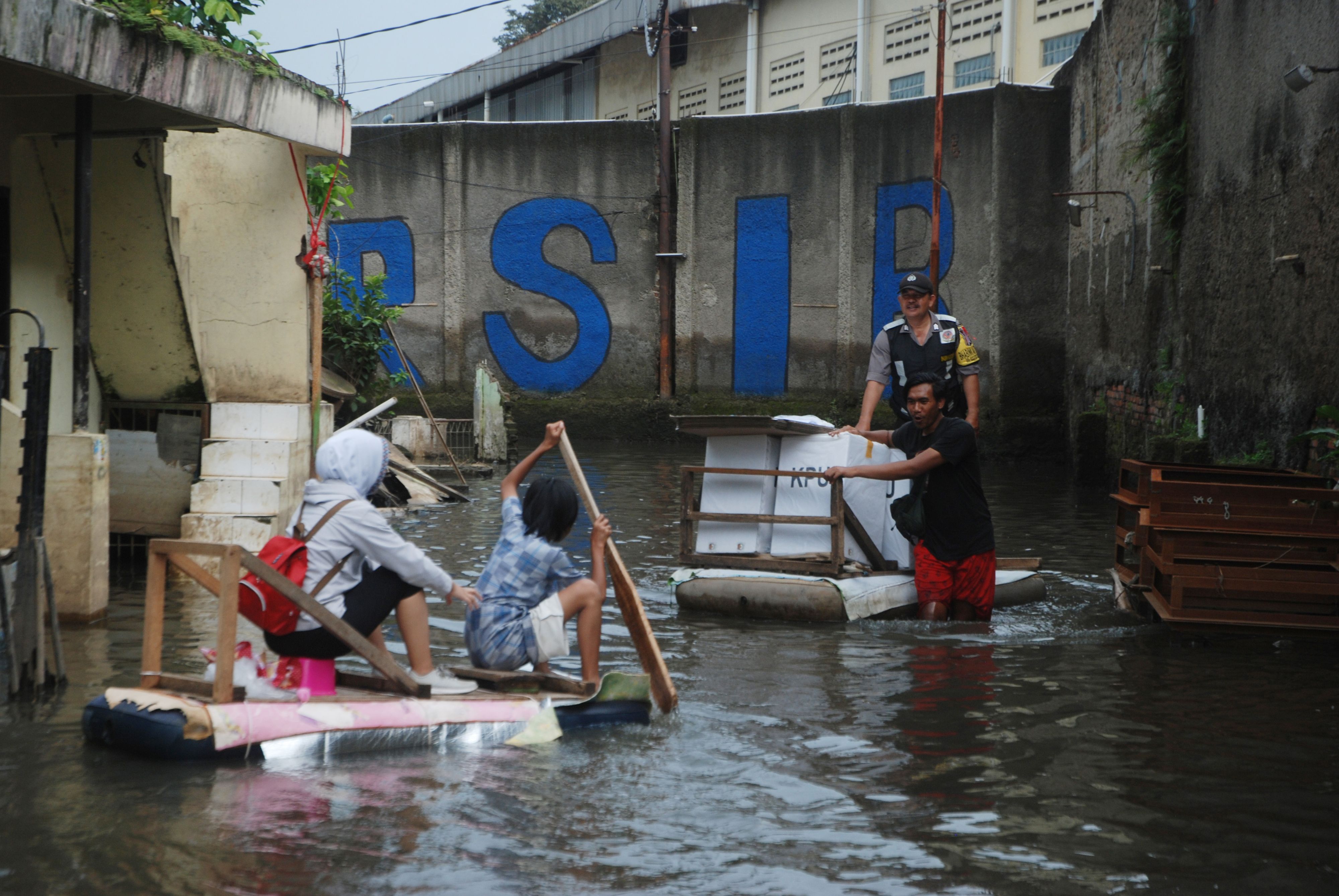 Photo by TIMUR MATAHARI/AFP/Getty Images
Photo by TIMUR MATAHARI/AFP/Getty Images
Remarkable.
Using various transportation tools
In Trumon, Southern Aceh province, ballot boxes and materials were brought to a polling station by elephant-riding mahouts.
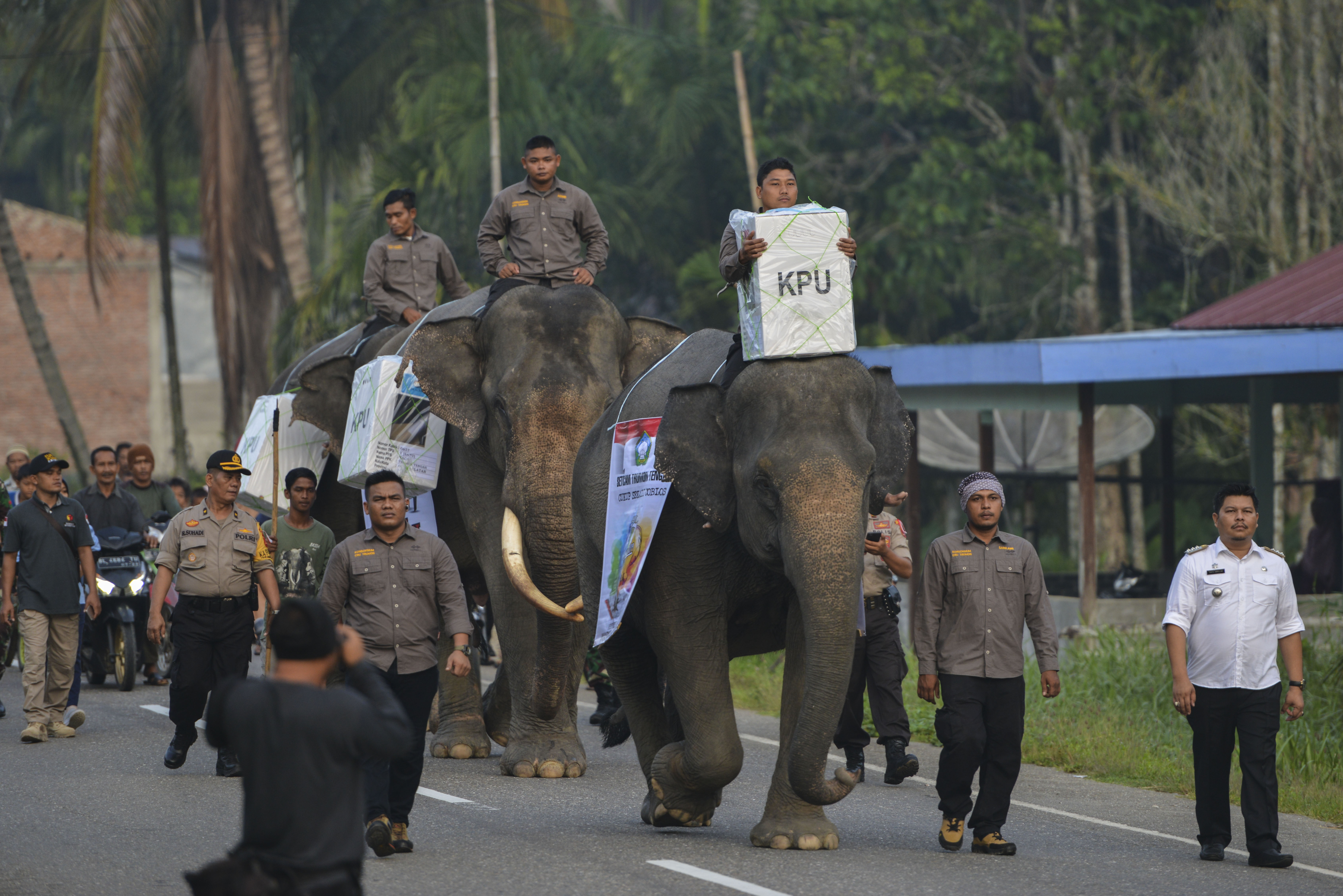 Photo by CHAIDEER MAHYUDDIN/AFP/Getty Images
Photo by CHAIDEER MAHYUDDIN/AFP/Getty Images
Ballot boxes were transported by horse carts too in Gili, Lombok.
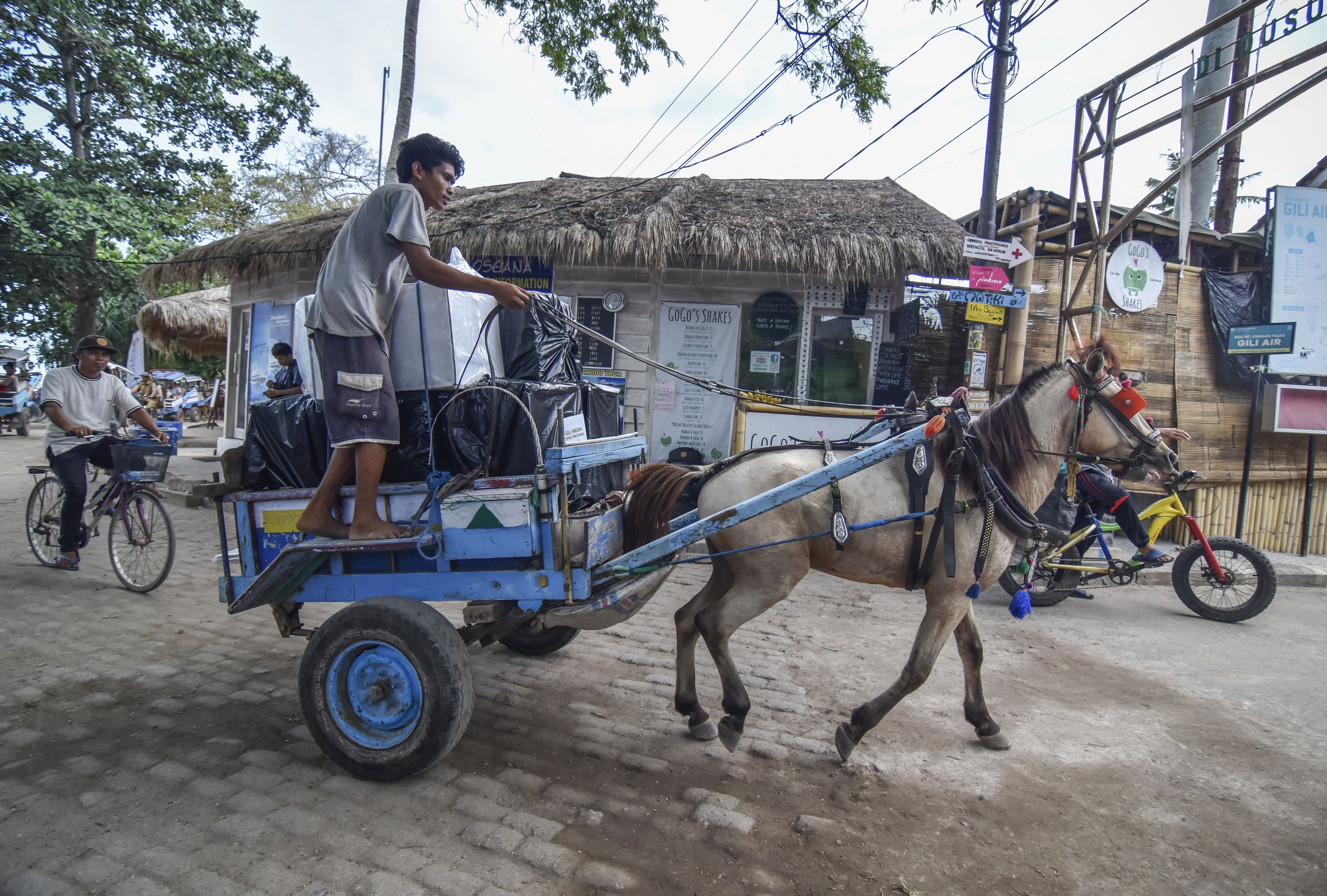 Photo by JAYADI/AFP/Getty Images
Photo by JAYADI/AFP/Getty Images
Security for voters
According to CNA, about two million military and civil protection force members were deployed across the country to make sure the voting process goes smoothly.
Security personnel also were on hand to ensure that no fight breaks out between opposing camps supporting different candidates.
Military personnel were also deployed in Papua province to protect voters from armed rebels.
Young democracy
Indonesia is a relatively young democracy.
The first democratic elections were held in the country in 1999 after Suharto, a military general widely perceived by foreign media to be a dictator, fell in 1998.
But a young democracy has its fair share of growing pains too.
According to Washington Post, two districts of Jayapura, the capital of Papua province in the east, were unable to vote as ballots and ballot boxes failed to be delivered.
Police officers were seen escorting a resident away from the polling station after she voiced her disappointment with the situation -- many had waited to vote since early morning, but were unable to.
When will results be out?
Unofficial quick count results will be available at 3pm Jakarta time (4pm Singapore time).
Full official results will only be available by May 22.
Newly elected lawmakers will be inaugurated on Oct. 1, while the new president and vice-president will be inaugurated on Oct. 20.
Professional political watchers have predicted a Jokowi win, although it boils down to how much of a margin he would have over his opponent, Prabowo.
Top image via DAENG MANSUR/AFP/Getty Images
If you like what you read, follow us on Facebook, Instagram, Twitter and Telegram to get the latest updates.
